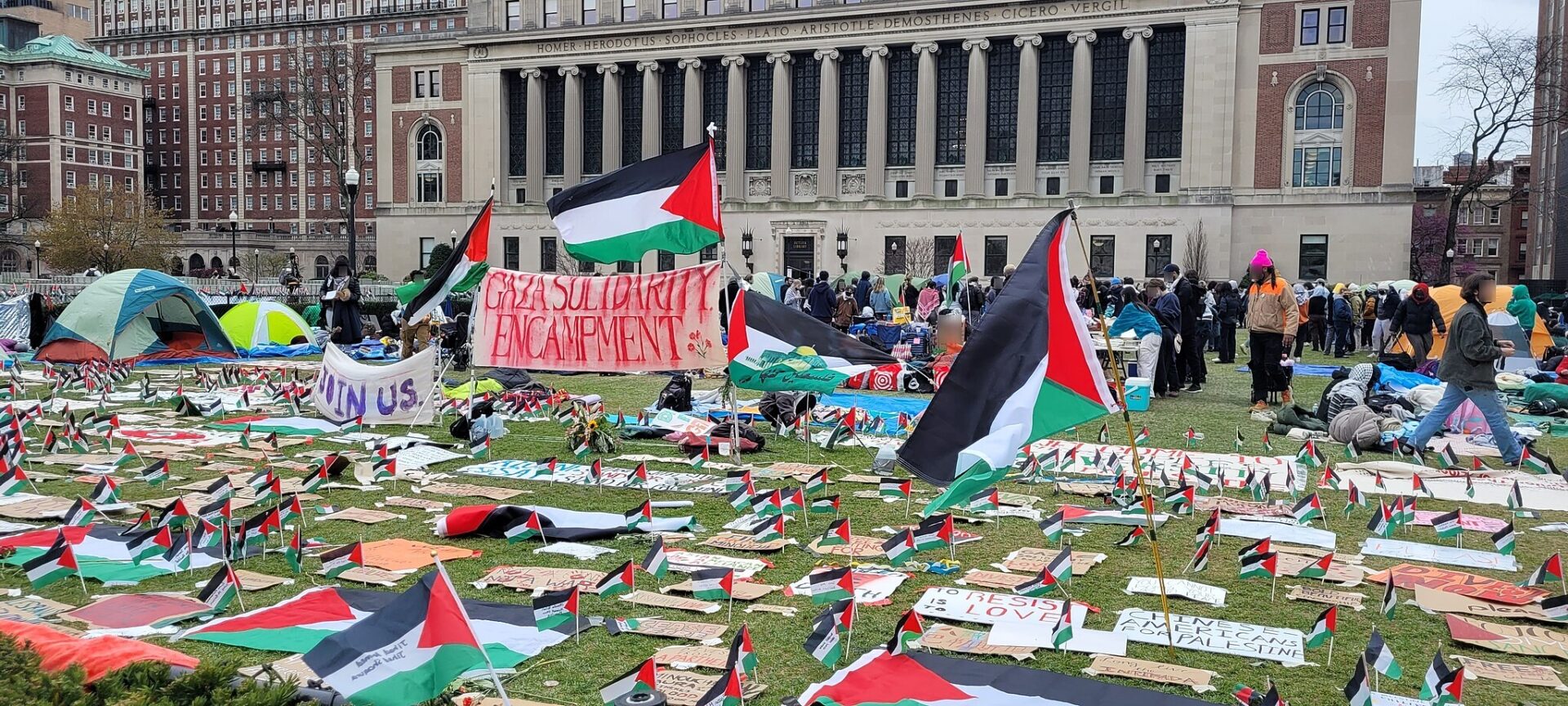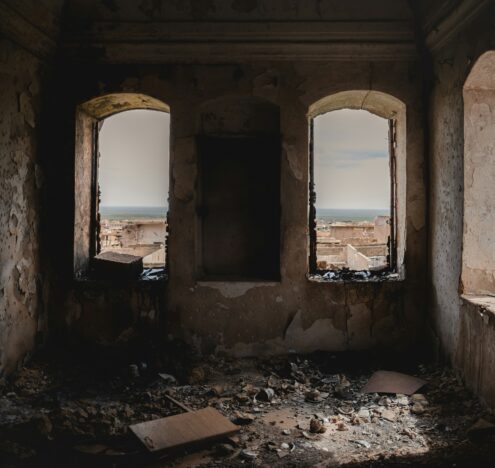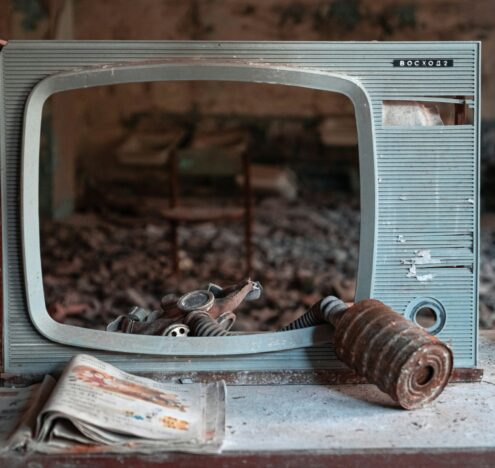Debate over the campus protests for Gaza, and the students involved in them, has come to overshadow discussion of the conflict itself. Our media and leaders need to change that, and urgently: The risk of escalation into a regional war is too great for us to allow the conversation to be permanently reframed. As long as the United States fails to make good on its rhetoric about Israel’s actions, it is enabling Israel’s escalation of the war into a regional conflict, the same way it has enabled Israel’s destruction of Gaza.
Since Israel announced its invasion of Gaza after Oct. 7, there have been legitimate concerns about the potential for the conflict to grow much larger. The risk of escalation grows with every day the war in Gaza continues, especially now that Israel and Iran have recently exchanged airstrikes.
Devastation
Even if the war does not expand, it has already been devastating: In Gaza alone, the violence has already killed at least 34,535 residents (more than half of whom were women and children), according to the Gazan Ministry of Health. Estimates put the damage to infrastructure at around $18.5 billion, which is about the entire 2022 GDP of the West Bank and Gaza.
Escalation, even beyond the additional destruction and loss of life that would result, would destabilize much of the region, and worse. A shooting war across the Middle East would jeopardize relations between Israel and countries such as Egypt and Jordan, cutting Israel off from the few long-standing relationships it has with its neighbors. And the American troops in Iraq and Syria are vulnerable; if something were to happen to them, the US would face significant public pressure to launch attacks on Iran and a dangerous retaliatory exchange could follow.
The risk of escalation grows with every day the war in Gaza continues, especially now that Israel and Iran have recently exchanged airstrikes.
Since students at Columbia University occupied part of their campus on April 17, students around the United States have established more than 50 encampments. They demand divestment from companies that profit from “Israeli apartheid, genocide, and occupation in Palestine,” an immediate ceasefire, and protections for pro-Palestinian speech. In a dramatic wave of escalation, university administrators have called on police to remove and arrest students, prompting intense debates over free speech on campus.
Warnings Not Enough
American warnings against further escalation are not enough to deter Israeli Prime Minister Benjamin Netanyahu. President Joe Biden warned Israel that the US would not back an Israeli counter-strike after Iran launched a large-scale drone and missile attack; Israel attacked Isfahan, home to part of Iran’s nuclear program, anyway.
As Israel has intensified its assault, the US has consistently failed to make good on its rhetorical commitment to human rights, international law, and de-escalation. It’s too late to undo the results of that failure — tens of thousands of civilians dead, the destruction of more than half of the homes in Gaza, and the ongoing discovery of new mass graves — even as many people have become numb to them.
US Leverage
Now, unless the US uses the leverage it has with Israel in a way that forces Netanyahu and his government to take notice, we will be enabling the escalation of this conflict in the same way we have enabled the destruction of Gaza. It is not too late, though: There is still time for us to prevent this conflict from getting worse and expanding.
Given the track record thus far of attempts to warn Netanyahu against escalation in and outside of Gaza, it’s unlikely that he will be deterred from pursuing further aggression toward Iran unless the US makes clear that he will pay a price, and makes that price too much for him to bear.
The Biden administration would surely face a political storm at home if it got that tough with Netanyahu. But it’s important to remember that there is a history of the US successfully leveraging its aid to prevent Israel from escalating conflicts with its neighbors.
During the 1973 Yom Kippur War, then-Secretary of State Henry Kissinger — who was seeking to avoid a war that would draw in the US and the Soviet Union — warned then-Prime Minister Golda Meir that the US would not send support to Israel if it failed to abide by the ceasefire recently negotiated with the Egyptian army. While Meir did not react favorably to that threat, she did take it seriously.
De-escalation
Though Netanyahu and his supporters in the US and Israel would not see it this way, by using its leverage, the US would be doing something that would benefit Israel too. Each of the adversaries that Israel could find itself at war against if it continues to escalate — Iran, Hezbollah, and the Houthis — has used Palestinian suffering as a plank in their military and PR campaigns against Israel.
Until Israel attacked the Iranian consulate complex in Damascus, Iran had avoided direct involvement, leaving the fighting to its proxies, including Hezbollah and the Houthis. Since Oct. 7, Hezbollah and Israel have been striking each other continuously. Meanwhile, the Houthis have taken advantage of their position on the Red Sea and the Gulf of Aden to hijack vessels and disrupt international shipping routes.
Each act of escalation opens the door to further expansion of this conflict, and with the US already committed to backing Israel, the more the war expands, the more the expectation of US support will grow.
Stopping the assault on Gaza, exchanging prisoners, and taking the plight of the Palestinians seriously would be an effective way to discredit and pre-empt any further escalations supposedly on Palestine’s behalf. De-escalating this conflict is not just a question of American policymakers pushing the government in the right direction. Like the students protesting right now, Americans should use their leverage over elected officials to express outrage over the violence that will only worsen unless Biden makes clear to Netanyahu that Israel’s escalation must stop.





















